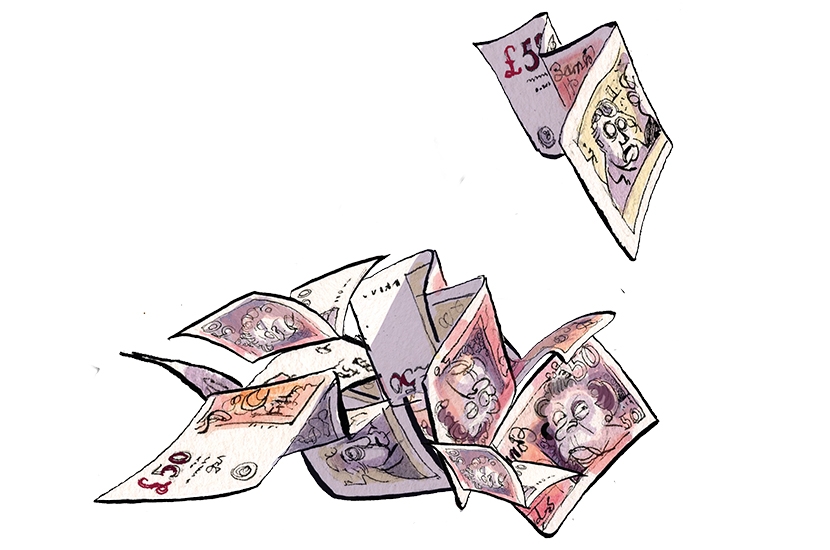If you can’t explain something, try an abbreviation. The latest in economics is MMT — Modern Monetary Theory or, in other words, a magic money tree. It’s a simple idea. It costs almost nothing to print money: the cost of printing banknotes is negligible compared with their face value, and even lower when the Bank of England creates money electronically through its so-called ‘quantitative easing’ programme (QE). That money could be given to the public — either directly or indirectly via the government — to enable people to spend more, so raising output and employment. We are all better off.
Why didn’t we think of this before? Well, of course we did. From Roman emperors through Henry VIII and the Weimar Republic to present-day Zimbabwe and Venezuela, rulers have shown all those clever central bankers struggling to get inflation up to their 2 per cent target how to do it. Unfortunately, they didn’t stop at 2 per cent but ended up in hyperinflations in which prices doubled in a day — equivalent to annual percentage inflation in the many trillions. Needless to say, in such situations the economy tends to collapse. As my wife says when I praise the quality of a bottle of wine and suggest some more, ‘Moderation in all things’.
The problem with the simple idea of MMT is that it belies the context to which it is applied. To be brutally honest, MMT is neither modern, nor monetary, nor a theory.
It is not modern because the ability to print paper (or, today, electronic) money has always raised the question of when to stop. And governments have always used deficit financing to support their wish to spend.
It is not monetary because the relevant questions concern fiscal policy: how should governments finance their deficits and what are the limits to those deficits? If deficits can always be financed by the printing of money by a compliant central bank, then we are in a world of ‘fiscal dominance’, to use the modern jargon.







Comments
Join the debate for just £1 a month
Be part of the conversation with other Spectator readers by getting your first three months for £3.
UNLOCK ACCESS Just £1 a monthAlready a subscriber? Log in